Key Takeaways
- Condescending behavior often involves a patronizing tone and belittling comments.
- Identifying verbal and non-verbal cues can help recognize condescension early.
- Understanding the psychological roots of condescension can lead to more empathetic responses.
- Setting boundaries and using “I” statements are effective strategies to handle condescension.
- Addressing condescension can improve personal relationships and mental health.
Identifying Condescending Behavior
Condescending behavior is not always easy to spot, yet it’s crucial to recognize it to protect your self-esteem and relationships. At its core, condescension involves treating others as inferior or less capable. This behavior can manifest in various forms, both verbally and non-verbally, and can be subtle or blatant.
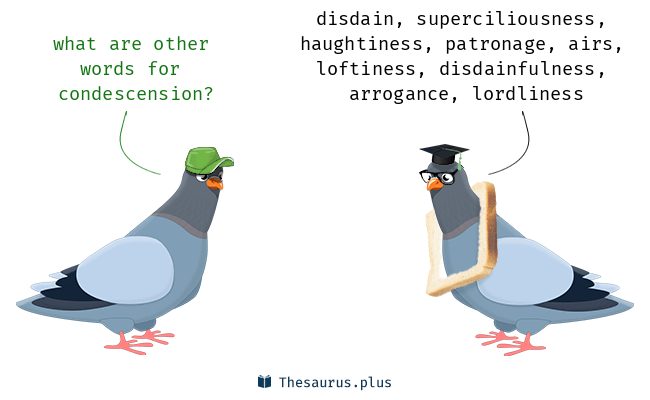
“More 230 Condescension Synonyms …” from thesaurus.plus and used with no modifications.
Verbal and Non-Verbal Cues
Verbal cues of condescension often include a dismissive tone, sarcasm, or unsolicited advice that implies incompetence. For example, if someone frequently tells you, “Oh, it’s easy, anyone can do it,” they might be implying that your efforts or intelligence are insufficient.
Non-verbal cues, on the other hand, can be equally telling. Eye-rolling, smirking, or a patronizing smile can communicate superiority without a single word spoken. These gestures can make you feel small and undervalued, affecting your confidence and interaction with the person.
Common Situations Where Condescension Occurs
Condescension can occur in various settings, from personal relationships to professional environments. In the workplace, it might surface during meetings where one colleague consistently undermines another’s suggestions. At home, it could be a partner who frequently dismisses your opinions or ideas.
Social gatherings can also be a breeding ground for condescending behavior, especially when individuals feel the need to assert dominance or display superiority in a group setting. Recognizing these situations can help you prepare and respond more effectively.
Subtle vs. Overt Condescending Actions
Not all condescending behavior is overt. Sometimes, it can be subtle, leaving you questioning whether you’re being overly sensitive. For instance, a subtle condescending action might be a backhanded compliment, such as, “You’re surprisingly good at this for someone with your background.” If you find yourself struggling with such behavior, it might be helpful to explore understanding boundaries in relationships.
Overt condescension is more straightforward and easier to identify. It includes actions like speaking in a slow, exaggerated manner as if the listener cannot comprehend, or directly belittling someone’s achievements. Both forms can be damaging, but recognizing them is the first step towards addressing the issue.
Understanding the Root Causes
Understanding why someone might behave condescendingly can empower you to respond with empathy and assertiveness. Condescension often stems from a complex mix of psychological, social, and personal factors.
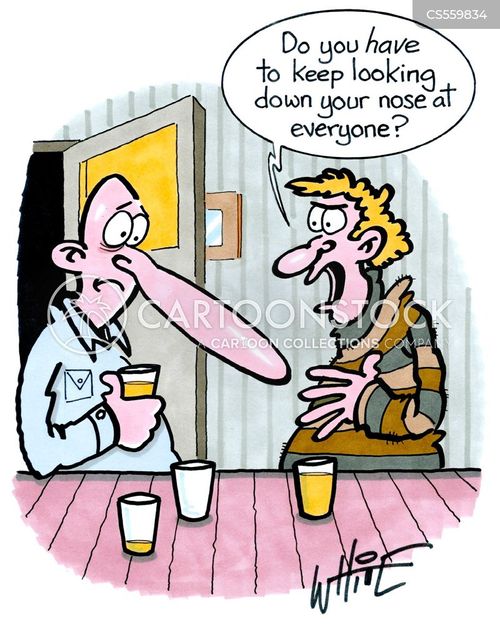
“Condescend Cartoons and Comics – funny …” from www.cartoonstock.com and used with no modifications.
“A condescending person exhibits an attitude of superiority, belittling others through patronizing behavior or tone.”
By uncovering these underlying causes, we can better navigate interactions and potentially defuse tension before it escalates.
Psychological Factors Behind Condescension
Psychologically, condescending behavior can be linked to insecurity or low self-esteem. Individuals who feel inadequate may resort to belittling others to elevate their own status. This defense mechanism provides a temporary boost to their self-worth but damages relationships in the process. For those struggling with self-esteem, exploring proven strategies to break bad habits might be beneficial.
Social and Cultural Influences
- Cultural norms that value hierarchy and status can encourage condescension as a means of asserting superiority.
- Social dynamics, such as competitive environments, can exacerbate the need to appear more knowledgeable or capable.
- Family upbringing and early social experiences often shape how individuals communicate and perceive power dynamics.
These influences can perpetuate condescending behavior, making it important to consider the broader context when addressing the issue.
Personal Insecurities and Defense Mechanisms
In many cases, personal insecurities play a significant role in condescending behavior. People who feel threatened or anxious about their abilities may use condescension as a way to mask their vulnerabilities. By shifting focus onto others’ perceived inadequacies, they avoid confronting their own fears.
Understanding these insecurities can help you approach condescending individuals with compassion while still maintaining your boundaries. It’s crucial to balance empathy with assertiveness to protect your well-being and promote healthier interactions. For more on fostering positive connections, explore these science-backed tips for healthy relationship goals.
Professional and Social Ramifications
Condescending behavior can significantly impact both professional and social environments. In the workplace, it can lead to decreased morale, reduced productivity, and a toxic atmosphere. Employees who feel belittled are less likely to contribute ideas, collaborate effectively, or take initiative. This behavior can also hinder career advancement as it damages relationships with colleagues and supervisors.
Socially, condescension can isolate individuals from their peers. Friends may distance themselves from someone who consistently talks down to them, leading to strained or broken relationships. It’s crucial to address condescending behavior to maintain healthy interactions and a supportive network.
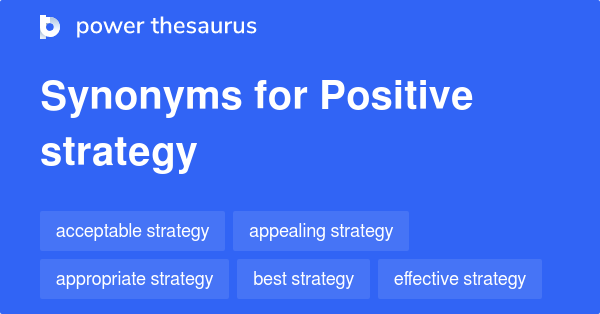
“Positive Strategy synonyms – 108 Words …” from www.powerthesaurus.org and used with no modifications.
Strategies to Handle Condescending Behavior
Effectively managing condescending behavior involves a combination of assertive communication, boundary-setting, and emotional regulation. By employing these strategies, you can protect your self-worth and foster more respectful interactions.
When faced with condescension, it’s important to remain composed and respond thoughtfully rather than react impulsively. Here are some strategies to help you navigate these situations:
Using “I” Statements for Assertive Communication
“I” statements are a powerful tool for expressing your feelings without sounding accusatory. They help reduce defensiveness and open the door to constructive dialogue. For example, instead of saying, “You’re always talking down to me,” try, “I feel undervalued when my opinions are dismissed.” For more on improving communication, explore these proactivity boost tips.
This approach shifts the focus to your experience, encouraging the other person to consider your perspective. It can also lead to a more empathetic and understanding conversation, helping to avoid condescending phrases that might hinder effective communication.
Setting Clear Boundaries
Establishing boundaries is essential when dealing with condescending behavior. Clearly communicate what behavior is unacceptable and the consequences of crossing those boundaries. For instance, you might say, “I appreciate your input, but I need you to respect my decisions without undermining them.”
By setting boundaries, you assert your right to be treated with respect and encourage others to engage with you more positively.
Avoiding Engagement in Unnecessary Arguments
Engaging in arguments with a condescending person can be counterproductive. It often leads to heightened emotions and further conflict. Instead, focus on de-escalating the situation by redirecting the conversation or calmly stating your position without getting drawn into a debate. Understanding boundaries in relationships can also help in managing such interactions more effectively.
Remember, it’s okay to walk away from a conversation if it becomes too heated or unproductive. Protecting your mental well-being is a priority.
Staying Calm and Composed in Heated Moments
Remaining calm in the face of condescension can be challenging, but it’s crucial for maintaining control over the situation. Practice deep breathing or counting to ten to help regulate your emotions. This pause allows you to respond thoughtfully rather than react impulsively. For more insights, explore optimism techniques that can further aid in managing your emotions effectively.
Staying composed demonstrates confidence and self-assurance, which can discourage further condescending behavior from others.
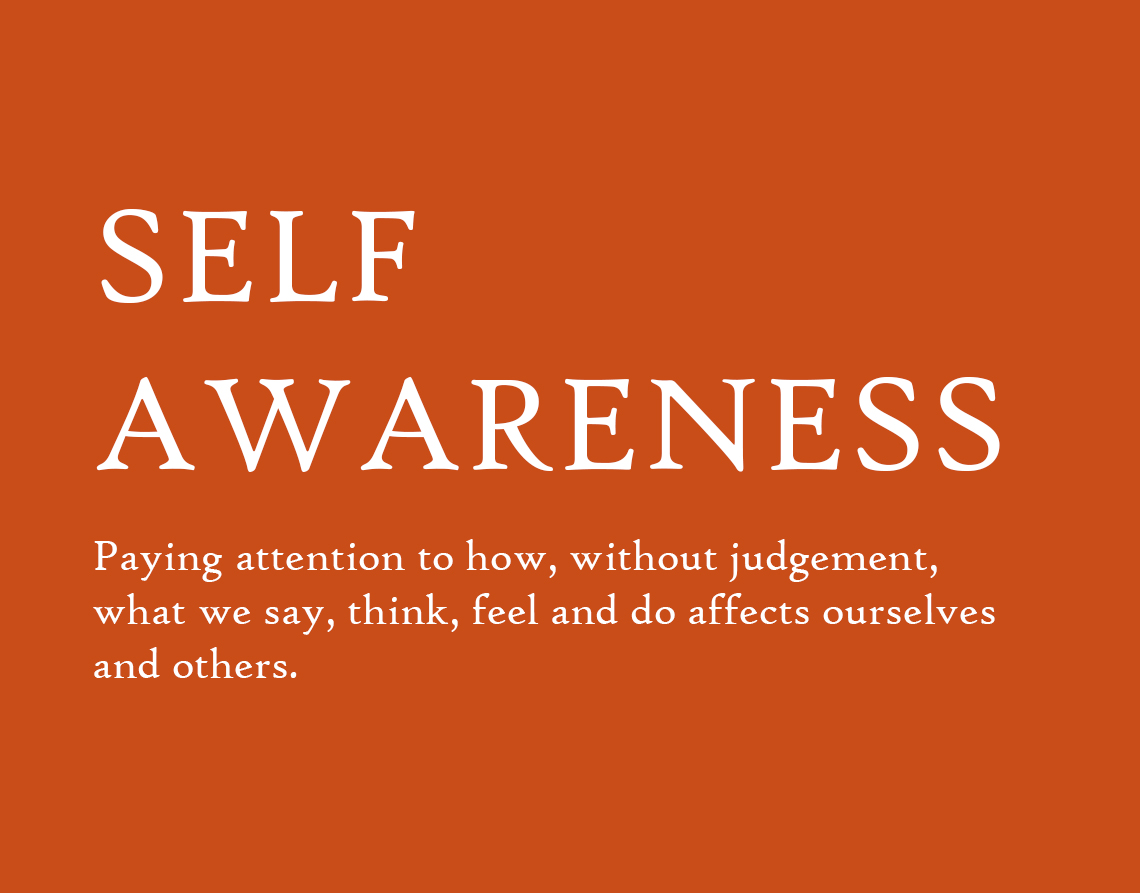
“ICTM: 10/31/22, Self-awareness – Sixtyone” from 61golf.com and used with no modifications.
How to Reduce Your Own Condescending Tendencies
It’s important to reflect on our own behavior and ensure we’re not inadvertently being condescending to others. Self-awareness and empathy are key to fostering respectful communication.
Here are some steps to help you reduce any condescending tendencies:
Self-Reflection and Awareness
Take time to reflect on your interactions with others. Are there moments when you might have unintentionally belittled someone? Consider how your words and actions might be perceived and strive to be more mindful in future conversations.
“By being more mindful of our words and tone of voice, listening attentively, and having an open and humble attitude, we can work toward fostering more respectful communication.”
Journaling your thoughts or discussing them with a trusted friend can provide valuable insights into your behavior.
Listening and Empathy Skills
Active listening is a powerful tool for reducing condescension. By fully engaging with the speaker and showing genuine interest in their perspective, you demonstrate respect and understanding. Practice empathy by putting yourself in the other person’s shoes and considering their feelings and experiences.
Empathy fosters connection and helps build stronger, more respectful relationships.
Accepting Constructive Feedback
Being open to feedback is essential for personal growth. Encourage others to share their perspectives on your behavior and be willing to make changes if needed. Constructive criticism can be a valuable tool for identifying areas where you might unintentionally come across as condescending.
Approach feedback with an open mind and a willingness to improve. This attitude not only enhances your interactions but also sets a positive example for others. For more insights, explore these effective ways for healthy relationship goals.
Cultivating Respectful Interactions
Creating an environment of mutual respect requires ongoing effort and commitment. By fostering positive communication and encouraging empathy, you can build stronger, more fulfilling relationships.
Here are some ways to cultivate respectful interactions:
Fostering a Positive Communication Environment
Encourage open and honest communication by creating a safe space for dialogue. This involves actively listening, validating others’ feelings, and avoiding judgment. By promoting a culture of respect, you set the tone for more positive interactions.
Additionally, practice gratitude and appreciation in your relationships. Acknowledging others’ contributions and expressing thanks can strengthen bonds and reduce the likelihood of condescending behavior.
Building Self-Worth and Confidence
Building self-worth and confidence is crucial when dealing with condescending behavior. It’s important to remember that you have value and deserve to be treated with respect. Focus on your strengths and achievements, and don’t let others’ opinions define your self-worth.
Engage in activities that boost your confidence, such as pursuing hobbies, learning new skills, or setting and achieving personal goals. Surround yourself with supportive individuals who uplift and encourage you. Their positive influence can help reinforce your self-esteem and resilience against condescending behavior.
Seeking Professional Help
If condescending behavior is affecting your mental health or relationships, seeking professional help can be a beneficial step. Therapy or counseling can provide a safe space to explore your feelings, develop coping strategies, and work towards healthier interactions.
When to Consider Therapy or Counseling
Consider therapy if you find yourself frequently affected by condescending behavior, either as a recipient or a perpetrator. Professional guidance can help you understand the underlying causes and develop effective communication strategies.
Additionally, if condescension is causing significant distress, anxiety, or impacting your self-esteem, therapy can offer valuable support and tools for healing. Understanding boundaries in relationships can also be an important aspect of this process.
Benefits of Professional Intervention
Professional intervention provides a structured environment to address condescending behavior. Therapists can offer personalized strategies for managing emotions, setting boundaries, and improving communication skills.
Through therapy, individuals can gain insight into their behavior patterns and learn healthier ways to interact with others. This process can lead to more fulfilling relationships and a stronger sense of self-worth. For more insights, you can explore signs of a condescending person and how to deal with them effectively.
Moreover, therapy can help identify any underlying mental health issues that may contribute to condescending behavior, allowing for targeted treatment and support. For example, understanding concepts like enmeshment in families can provide deeper insights into relational dynamics that might be influencing such behavior.
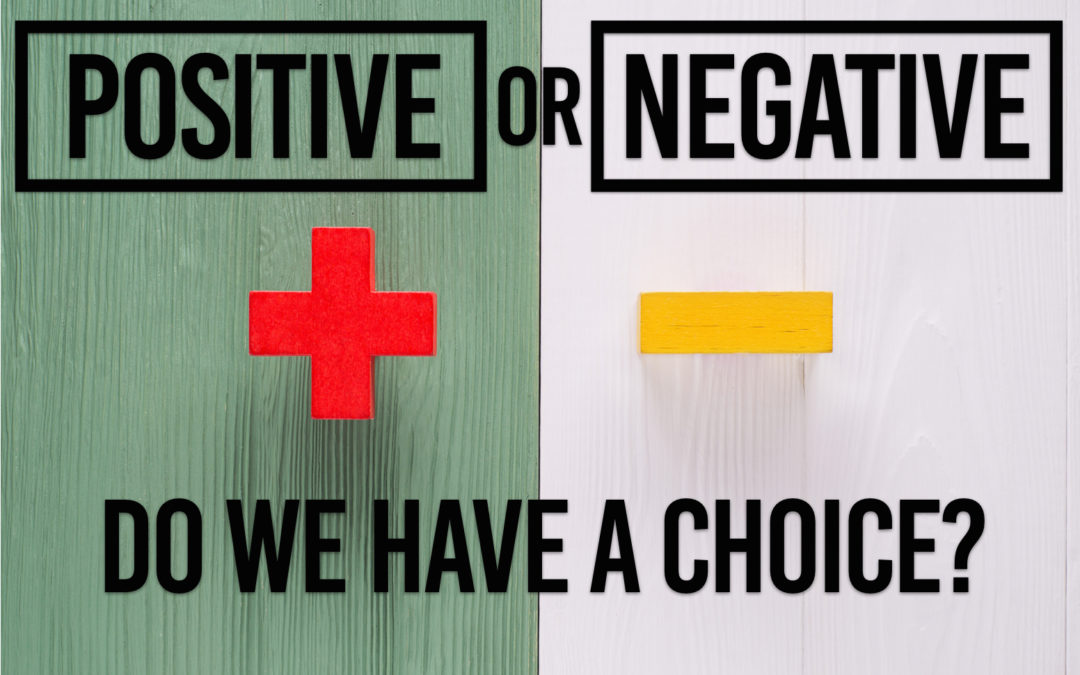
“Duke Matlock Executive Coach” from www.dukematlock.com and used with no modifications.
“A professional can offer guidance on how to deal with a condescending person in a way that fosters healthier communication and mutual respect.”
Choosing the Right Counselor or Therapist
When selecting a counselor or therapist, consider their experience and expertise in dealing with interpersonal issues and communication challenges. Look for professionals who specialize in areas relevant to your needs, such as relationship counseling or self-esteem building.
It’s important to feel comfortable and supported by your therapist, so don’t hesitate to explore different options until you find the right fit. A strong therapeutic relationship can significantly enhance the effectiveness of the intervention.
Frequently Asked Questions (FAQ)
Understanding condescending behavior and how to address it can be complex. Here are some common questions to help clarify the topic:
What are some signs that someone is being condescending?
Signs of condescending behavior include a patronizing tone, dismissive comments, and non-verbal cues like eye-rolling or smirking. These actions often imply superiority and can leave the recipient feeling belittled or undervalued.
“Condescension can also show up not just in what we say, but the tone of voice we employ, as well as nonverbal cues like facial expressions — e.g., rolling our eyes.”
Recognizing these signs is the first step in addressing the behavior and protecting your self-esteem.
Being aware of these cues can help you navigate interactions more effectively and respond assertively when necessary.
How can I assertively address condescending behavior?
Addressing condescending behavior assertively involves using “I” statements to express your feelings without sounding accusatory. For example, say, “I feel disrespected when my contributions are dismissed,” rather than accusing the person directly.
Set clear boundaries and communicate the consequences of crossing them. This approach encourages respectful interactions and discourages further condescending behavior.
Practice staying calm and composed, even in heated moments, to maintain control over the situation and respond thoughtfully.
Remember, it’s okay to disengage from a conversation if it becomes unproductive or emotionally taxing. Protecting your well-being is a priority.
“Point out their condescending remarks when they happen and explain how they make you feel.”
Why do some people often exhibit condescending behavior?
Condescending behavior can stem from various psychological, social, and personal factors. Common reasons include a lack of adaptability in social interactions and a need to assert dominance.
- Insecurity or low self-esteem, leading individuals to belittle others to elevate their own status.
- Cultural norms that value hierarchy and status, encouraging condescension as a means of asserting superiority.
- Personal insecurities and defense mechanisms, where individuals mask their vulnerabilities by shifting focus onto others’ perceived inadequacies.
Understanding these underlying causes can help you approach condescending individuals with empathy while maintaining your boundaries.
How can I ensure I’m not being condescending to others?
To avoid being condescending, practice self-reflection and awareness. Consider how your words and actions might be perceived and strive to be more mindful in future conversations.
Engage in active listening and show genuine interest in others’ perspectives. Empathy and understanding can foster more respectful communication and reduce the likelihood of condescending behavior.
When should I seek help if dealing with condescension affects my well-being?
If condescending behavior is causing significant distress, anxiety, or impacting your self-esteem, consider seeking professional help. Therapy or counseling can provide valuable support and tools for healing.
It’s important to prioritize your mental health and well-being. Don’t hesitate to reach out for assistance if condescension is affecting your quality of life.
Professional guidance can help you develop effective strategies for managing emotions, setting boundaries, and improving communication skills.
Remember, seeking help is a proactive step towards personal growth and healthier relationships. For more insights, explore these signs of a condescending person in relationships and how to deal with them.
Ultimately, addressing condescending behavior can lead to more fulfilling interactions and a stronger sense of self-worth.
Condescending behavior can be difficult to handle, especially when it comes from someone you care about. Recognizing the signs of condescension is the first step in addressing it effectively. By understanding the root causes, such as insecurity or a lack of empathy, you can better navigate these interactions. In family dynamics, for instance, recognizing key signs of enmeshment can help in setting boundaries and improving relationships.










Leave a Reply